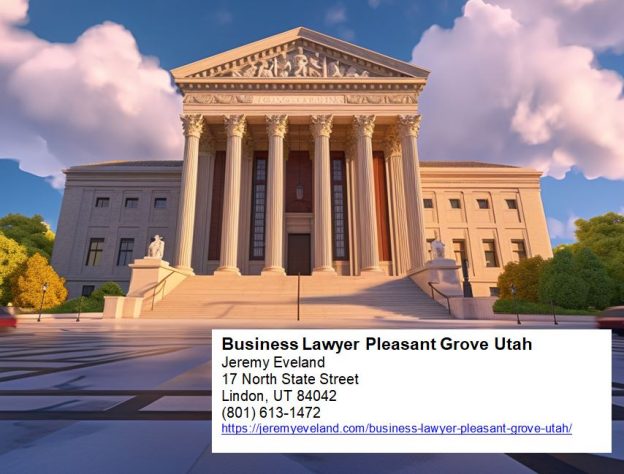A business lawyer is an attorney who specializes in providing legal services to businesses and entrepreneurs. Business law covers a wide range of legal issues and practices, including business formation, contracts, intellectual property, disputes, and representation in legal matters. Business lawyers play a critical role in advising and protecting businesses, ensuring their compliance with the law, and helping them achieve their goals and objectives.
The importance of hiring a business lawyer cannot be overstated, especially for businesses operating in today’s complex legal landscape. A business lawyer can help entrepreneurs and business owners navigate the legal challenges and risks that arise in the course of conducting business. With their in-depth knowledge of the law and years of experience, business lawyers can provide expert advice and guidance to help businesses make informed decisions, avoid costly legal mistakes, and achieve their objectives.
This outline aims to provide a comprehensive overview of business lawyers in Pleasant Grove, Utah, including their qualifications, roles and responsibilities, and benefits. It is intended to serve as a helpful guide for businesses and entrepreneurs who are seeking legal services in the area.
Qualifications of a business lawyer in Pleasant Grove, Utah, include a degree in law from an accredited law school, successful completion of the bar examination, and a specialization in business law. Business lawyers must also have a minimum number of years of professional experience, demonstrating their expertise in the field.
The roles and responsibilities of a business lawyer in Pleasant Grove, Utah, are wide-ranging and diverse. They include advising on business formation, such as choosing the right business structure and registering the business with the state; reviewing contracts, such as employment contracts and vendor agreements, to ensure their legality and enforceability; protecting intellectual property, such as trademarks and patents, from infringement or unauthorized use; resolving disputes between businesses or between businesses and individuals; and representing the business in legal matters, such as negotiations, mediations, and lawsuits.
The benefits of hiring a business lawyer in Pleasant Grove, Utah, are numerous and far-reaching. With their expert advice, businesses can minimize legal risks and avoid costly legal mistakes. Business lawyers can also save time and resources by handling legal tasks and resolving disputes, allowing business owners and entrepreneurs to focus on other critical aspects of their business. Furthermore, with the guidance of a business lawyer, businesses can enhance their success and achieve their goals more effectively and efficiently.

In conclusion, a business lawyer in Pleasant Grove, Utah, can play a critical role in helping businesses succeed and achieve their goals. With their expertise and experience, business lawyers can provide expert advice and guidance, minimize legal risks, save time and resources, and enhance business success. Businesses and entrepreneurs who are seeking legal services in the area are encouraged to seek out the services of a qualified and experienced business lawyer.
Qualifications of a Business Lawyer in Pleasant Grove, Utah 700 WORDS
A business lawyer in Pleasant Grove, Utah, must possess a certain set of qualifications to be able to effectively provide legal services to businesses and entrepreneurs. These qualifications include education, bar examination, specialization in business law, and professional experience.
Education Requirements:
To become a business lawyer, an individual must first complete a bachelor’s degree in any field of study. They must then complete a law degree (J.D.) from an accredited law school. This usually takes three years of full-time study. During their law school education, business lawyers-to-be will study various areas of the law, including business law, contracts, intellectual property, and litigation.
Bar Examination:
After completing their law degree, business lawyers must take and pass the bar examination in the state where they wish to practice law. The bar examination is a comprehensive test that covers various areas of the law, including business law. In Utah, the bar examination is administered by the Utah State Board of Bar Examiners.
Specialization in Business Law:
A business lawyer in Pleasant Grove, Utah, must have a specialization in business law to be able to provide expert legal services to businesses. This requires a deep understanding of the legal issues and challenges that businesses face, as well as the laws and regulations that govern business operations. Specialization in business law can be achieved through additional education, training, and experience.
Professional Experience:
In addition to education and specialization, a business lawyer in Pleasant Grove, Utah, must have a minimum number of years of professional experience. This experience demonstrates the business lawyer’s expertise in the field and their ability to effectively advise and represent businesses. Business lawyers who have a strong track record of successfully representing businesses and resolving legal issues are highly sought after.
In conclusion, to be a qualified business lawyer in Pleasant Grove, Utah, an individual must have a law degree from an accredited law school, have passed the bar examination, have a specialization in business law, and have a minimum number of years of professional experience. These qualifications ensure that a business lawyer has the knowledge, skills, and experience to effectively advise and represent businesses, and to help them achieve their goals and objectives.
Roles and Responsibilities of a Business Lawyer in Pleasant Grove, Utah
The roles and responsibilities of a business lawyer in Pleasant Grove, Utah, are extensive and encompass a wide range of legal services for businesses. The following are some of the most common roles and responsibilities of a business lawyer:
Advising on Business Formation: A business lawyer can help entrepreneurs and business owners choose the right business structure and register the business with the state. They can advise on the pros and cons of different business structures, such as sole proprietorship, partnership, limited liability company (LLC), or corporation. They can also help draft and file the necessary paperwork and ensure that the business is in compliance with all state and federal regulations.
Reviewing Contracts:
A business lawyer can review contracts, such as employment contracts and vendor agreements, to ensure their legality and enforceability. They can advise on the terms of the contracts and negotiate on behalf of the business to reach a mutually beneficial agreement. This helps protect the business’s interests and reduces the risk of disputes and legal challenges in the future.
Protecting Intellectual Property:
A business lawyer can help businesses protect their intellectual property, such as trademarks and patents, from infringement or unauthorized use. They can advise on the process of registering trademarks and patents and take legal action to enforce the business’s rights if necessary.
Resolving Disputes: A business lawyer can help businesses resolve disputes between themselves or between businesses and individuals. They can represent the business in negotiations, mediations, and lawsuits, and help find a resolution that is in the best interests of the business.
Representing the Business in Legal Matters
: A business lawyer can represent the business in legal matters, such as negotiations, mediation, and lawsuits. They can provide expert legal advice and guidance, and help the business navigate the legal process and achieve its objectives.
In conclusion, the roles and responsibilities of a business lawyer in Pleasant Grove, Utah, are diverse and critical to the success of businesses. A business lawyer can provide expert advice and guidance on business formation, contracts, intellectual property, disputes, and representation in legal matters. By seeking the services of a qualified and experienced business lawyer, businesses can minimize legal risks, avoid costly legal mistakes, and achieve their goals and objectives more effectively and efficiently.
Benefits of Hiring a Business Lawyer in Pleasant Grove, Utah
Hiring a business lawyer in Pleasant Grove, Utah, can bring numerous benefits to businesses and entrepreneurs. Some of the most significant benefits include:
Legal Expertise:
A business lawyer brings a high level of legal expertise and knowledge to the table. They have a deep understanding of the laws and regulations that govern business operations and can provide expert advice and guidance to businesses on a wide range of legal matters. This helps businesses minimize legal risks and avoid costly legal mistakes.
Protection of Interests:
A business lawyer can help businesses protect their interests and resolve disputes effectively. They can review contracts, advise on legal issues, and represent the business in negotiations, mediations, and lawsuits. This helps ensure that the business’s rights are protected and that their interests are represented in legal matters.
Reduced Legal Costs:
Hiring a business lawyer can help reduce the cost of legal services. A business lawyer can advise on legal matters, resolve disputes, and handle negotiations, mediations, and lawsuits more efficiently and cost-effectively than businesses can on their own. This helps businesses save money and reduce the cost of legal services.
Improved Decision-Making
: A business lawyer can provide expert legal advice and guidance to businesses, which can help improve decision-making. They can help businesses understand the legal implications of their decisions, minimize legal risks, and make informed decisions that are in the best interests of the business.
In conclusion, hiring a business lawyer in Pleasant Grove, Utah, can bring numerous benefits to businesses and entrepreneurs. A business lawyer can provide expert legal advice and guidance, protect the business’s interests, reduce legal costs, and improve decision-making. By seeking the services of a qualified and experienced business lawyer, businesses can minimize legal risks, avoid costly legal mistakes, and achieve their goals and objectives more effectively and efficiently.
Conclusion
In conclusion, a business lawyer in Pleasant Grove, Utah plays a critical role in the success of businesses and entrepreneurs. They provide expert legal advice and guidance on a wide range of legal matters, including business formation, contracts, intellectual property, disputes, and representation in legal matters. Hiring a business lawyer can bring numerous benefits, such as legal expertise, protection of interests, reduced legal costs, and improved decision-making. By seeking the services of a qualified and experienced business lawyer, businesses can minimize legal risks, avoid costly legal mistakes, and achieve their goals and objectives more effectively and efficiently. It is important for businesses to invest in the services of a business lawyer to ensure their legal compliance, protect their interests, and achieve their business objectives.
Why Your Pleasant Grove Business Needs a Lawyer
Running a business is no easy feat. There are so many moving parts to keep track of, from managing employees to handling finances.
Amidst all the chaos, legal issues can arise at any time and it can be hard for business owners to know how to navigate them. That’s where a business lawyer comes in.
The Role of a Business Lawyer
A business lawyer is an attorney who specializes in providing legal services for businesses. They can offer guidance on a wide range of legal matters, from drafting and reviewing contracts to handling employment disputes or intellectual property issues.
Their primary goal is to help businesses navigate complex legal issues and prevent problems before they occur. By working with a skilled business lawyer, you can receive legal advice that ensures your company operates within state and federal laws while protecting your interests at every step of the way.
Why Your Pleasant Grove Business Needs One
If you’re running a business in Pleasant Grove, Utah, it’s important to have a local attorney by your side who understands the unique challenges that come with operating in this area. A local attorney has experience working with other businesses in the region and knows what it takes to succeed here. Beyond this, there are several other reasons why having a business lawyer is critical for any Pleasant Grove-based company:
Preventing Legal Issues Before They Happen
A skilled business lawyer can help prevent future legal disputes by ensuring that all agreements and contracts are legally binding and enforceable. This means that if something does go wrong down the line, you have documentation that will hold up in court.
Gaining Expertise on Complex Legal Matters
If you encounter an issue that requires legal expertise outside of your realm of knowledge, a business lawyer can help fill those gaps. They can provide guidance on complex legal matters like intellectual property law, employment law, and contract disputes.
Saving Time and Money
By having a business lawyer on retainer, you can save time and money in the long run. Rather than spending countless hours researching legal issues online or trying to resolve disputes on your own, you can trust that your attorney has the knowledge and experience to handle everything efficiently.
All in all, having a business lawyer is crucial for any Pleasant Grove-based company. When it comes to protecting your business interests and navigating complex legal issues, there’s no substitute for working with an experienced attorney who understands the ins-and-outs of Utah’s laws.
What is a Business Lawyer?
When you’re running a business in Pleasant Grove, Utah, you need to make sure that you’re following all of the legal requirements and regulations. That’s where a business lawyer comes in. Simply put, a business lawyer is an attorney who specializes in helping businesses with their legal needs.
Definition of a Business Lawyer
A business lawyer is sometimes called a corporate lawyer or commercial lawyer. This type of lawyer has expertise in various areas of law, including contract law, employment law, intellectual property law, and tax law. They can also advise on compliance with local and state regulations.
Types of Legal Issues They Handle
Business lawyers in Pleasant Grove handle a variety of legal issues that can arise when operating a company. These may include drafting contracts and agreements for clients or employees; providing advice on regulatory compliance for specific industries or businesses; representing companies involved in disputes or litigation; assisting with mergers and acquisitions; advising on intellectual property matters such as trademarks or copyrights.
Why Businesses Need Them
Having an experienced business lawyer by your side can be invaluable when making critical decisions about your company’s future. The expertise they offer can help prevent costly mistakes down the road that could otherwise be avoided. A business lawyer can also help navigate complex legal issues and provide guidance on what actions to take when disputes arise.
If you’re running a business in Pleasant Grove, Utah, it’s important to have the right legal support. A qualified business lawyer will be able to provide the guidance needed to ensure your company is compliant with all local laws and regulations while also protecting your interests as an entrepreneur or owner.
Benefits of Hiring a Business Lawyer in Pleasant Grove, Utah
Local Knowledge and Expertise
One of the biggest benefits of hiring a business lawyer in Pleasant Grove, Utah is their local knowledge and expertise. A business lawyer who is familiar with the local area can provide valuable insight into the legal landscape of your community.
They will have a deep understanding of local regulations and laws that may impact your business operations. Moreover, a local business lawyer has established relationships with other businesses, law firms, and professionals in the area.
This network can be beneficial for referrals or collaborations that are essential for your success. You can leverage their connections to get better deals on services from other professionals or companies.
Understanding State and Local Laws
Pleasant Grove, Utah has its own set of state and local laws that businesses must abide by to avoid legal troubles. A business lawyer from this area will have extensive knowledge of these laws, which ensures they can help you navigate the complex web of regulations that govern your industry.
A business lawyer will review all applicable documents related to your company’s structure (e.g., partnership agreement), employment contracts, agreements with vendors or suppliers to ensure compliance with existing laws and regulations. Any mistake in complying with these rules could lead to hefty fines or lawsuits against your company.
Assistance with Legal Paperwork and Contracts
Another benefit of hiring a business lawyer is getting assistance with legal paperwork and contracts. Businesses have various legal documents that need drafting or reviewing from time to time; they include partnership agreements, employee contracts, leases/rental agreements for office space among others.
Drafting these documents requires specialized knowledge because they need to be comprehensive enough but not too restrictive on either party’s rights. Having an experienced business attorney draft them gives peace-of-mind while ensuring all bases are covered legally.
Final Thoughts Having a business lawyer in Pleasant Grove, Utah will give you an advantage over competitors and prevent legal liabilities that might arise.
A local attorney will help analyze your business strategies to identify potential legal issues you may face down the road and suggest ways to mitigate them. Consider hiring one today if you want to protect your enterprise from costly legal problems.
Common Legal Issues Handled by Business Lawyers in Pleasant Grove, Utah
Formation and Structuring of Businesses: Building a Strong Foundation for Your Company
One of the most important legal issues handled by business lawyers in Pleasant Grove, Utah is the formation and structuring of businesses. A business lawyer can help entrepreneurs determine the best legal structure for their company, whether it’s a sole proprietorship, partnership, corporation or LLC.
They can also assist with registering a business with the state and obtaining any necessary licenses and permits. A skilled business lawyer will work closely with their clients to ensure that all aspects of their company’s formation are taken care of.
This includes drafting articles of incorporation or operating agreements, creating shareholder agreements, and ensuring compliance with local laws and regulations. Additionally, they can help businesses navigate complex tax codes and provide advice on how to protect personal assets from liability.
Contract Drafting and Review: Protecting Your Interests
Contracts form the backbone of any successful business relationship. Whether you’re hiring employees or signing a lease on a new office space – every agreement should be carefully drafted or reviewed by an experienced business lawyer.
To guarantee that your interests are protected in any contract negotiation, it’s essential to have an attorney who knows your industry’s unique needs well. Business lawyers in Pleasant Grove are skilled at identifying potential problems in contracts before they become serious issues down the line.
They can also draft contracts tailored to specific client needs, including non-disclosure agreements (NDAs), licensing agreements, employment contracts & more. With a knowledgeable attorney by your side who knows what pitfalls to avoid when negotiating contracts you’ll have peace-of-mind whenever signing important documents.
Employment Law Issues: Navigating Complex Regulations & Lawsuits
Employees are essential cogs in any well-oiled machine of a company; however managing them can be tricky. Employment law can be difficult to navigate, especially with the ever-changing landscape brought on by new regulations and workplace policies.
A business lawyer in Pleasant Grove, Utah can help companies avoid potential legal issues in employment law. They can guide employers through the maze of state and federal regulations regarding employee rights, including minimum wage, overtime pay, safety standards & more.
They can also assist with developing employee handbooks that clearly outline company policies and procedures. In case of any disputes or claims against your business relating to employment issues, having a lawyer with expertise in employment law can help mitigate damages and avoid lawsuits.
Intellectual Property Protection: Safeguarding Your Business’s Assets
Intellectual property is one of the most valuable assets of any business. It includes patents, trademarks, copyrights & other intangible assets that give your company a competitive edge in the marketplace.
Business lawyers in Pleasant Grove are experts at helping their clients protect these valuable assets from infringement by competitors. They can assist businesses with filing patents or trademarks; drafting licensing agreements; enforcing intellectual property rights; and defending against allegations of infringement.
Businesses must take proactive steps to protect their intellectual property from competitors who could use it to gain an unfair advantage. A business lawyer is an essential partner for any company looking to safeguard its valuable ideas and inventions while staying on top of changing laws regarding copyrights or trademarks.
How to Choose the Right Business Lawyer for Your Pleasant Grove, Utah-based Business
Considerations when choosing a business lawyer
Choosing the right business lawyer for your Pleasant Grove, Utah-based business can be a daunting task. There are a lot of factors to consider and it’s important to find someone who understands your industry and can provide the legal support you need. One of the first things you should consider is their level of experience and expertise.
Experience and expertise in your industry or niche
When looking for a business lawyer, you want to find someone who has experience working with businesses similar to yours. If you’re in the tech industry, for example, it’s important to find a lawyer who understands the unique legal issues that come with that field.
This will ensure that they’re able to provide tailored advice and support that meets your specific needs. Another thing to consider is their level of expertise in general business law.
You want someone who has a deep understanding of all aspects of business law, from contracts and employment issues to intellectual property protection and beyond. Look for someone who has a strong track record of success in representing businesses like yours.
Availability and responsiveness
In addition to experience and expertise, it’s important to find a lawyer who is both available and responsive. You want someone who will be there when you need them, whether it’s answering questions about contracts or helping you navigate complex legal issues. Make sure you discuss availability upfront with any potential lawyers you’re considering hiring.
Ask about their communication policies and how quickly they typically respond to calls or emails. Ideally, you want someone who is always just a phone call or email away whenever you need them.
Fees and billing structure
It’s important to consider fees and billing structure when choosing a business lawyer for your Pleasant Grove-based business. Legal fees can be expensive, so it’s important to find someone whose rates fit within your budget.
Look for lawyers who offer transparent billing practices and who are willing to work with you to find a fee structure that works for your business. Some lawyers may offer flat rates or package deals, while others may bill hourly.
Make sure you understand the costs upfront so there are no surprises down the road. Choosing the right business lawyer is an important decision for any Pleasant Grove-based business.
Consider their experience and expertise in your industry, availability and responsiveness, and their fees and billing structure when making your decision. By taking the time to find the right lawyer, you can ensure that your business is well-protected legally and set up for long-term success.
Conclusion
Having a business lawyer for your Pleasant Grove, Utah-based business is crucial to ensure legal compliance and protection. Business lawyers provide numerous benefits, including local knowledge and expertise, understanding of state and local laws, assistance with legal paperwork and contracts, as well as handling common legal issues such as formation and structuring of businesses, contract drafting and review, employment law issues, intellectual property protection.
Without a business lawyer in Pleasant Grove Utah who has experience in your industry or niche, you could miss important details or fail to comply with state or federal regulations. Your business may also be vulnerable to legal disputes that could cost you time and money.
When choosing the right business lawyer for your Pleasant Grove Utah-based business, consider their experience and expertise in your industry or niche. You’ll want someone who is available when you need them most.
Also look into their fees and billing structure so that there are no surprises later on. With the help of a skilled business lawyer in Pleasant Grove Utah by your side, you can feel confident knowing that all aspects of your company are legally protected.
This allows you to focus on running your business while leaving the legal matters up to an expert. Investing in a knowledgeable and experienced business lawyer for your Pleasant Grove Utah-based company will not only protect you legally but can also give you peace of mind knowing that someone with expertise in the field has got your back.
Areas We Serve
We serve individuals and businesses in the following locations:
Salt Lake City Utah
West Valley City Utah
Provo Utah
West Jordan Utah
Orem Utah
Sandy Utah
Ogden Utah
St. George Utah
Layton Utah
South Jordan Utah
Lehi Utah
Millcreek Utah
Taylorsville Utah
Logan Utah
Murray Utah
Draper Utah
Bountiful Utah
Riverton Utah
Herriman Utah
Spanish Fork Utah
Roy Utah
Pleasant Grove Utah
Kearns Utah
Tooele Utah
Cottonwood Heights Utah
Midvale Utah
Springville Utah
Eagle Mountain Utah
Cedar City Utah
Kaysville Utah
Clearfield Utah
Holladay Utah
American Fork Utah
Syracuse Utah
Saratoga Springs Utah
Magna Utah
Washington Utah
South Salt Lake Utah
Farmington Utah
Clinton Utah
North Salt Lake Utah
Payson Utah
North Ogden Utah
Brigham City Utah
Highland Utah
Centerville Utah
Hurricane Utah
South Ogden Utah
Heber Utah
West Haven Utah
Bluffdale Utah
Santaquin Utah
Smithfield Utah
Woods Cross Utah
Grantsville Utah
Lindon Utah
North Logan Utah
West Point Utah
Vernal Utah
Alpine Utah
Cedar Hills Utah
Pleasant View Utah
Mapleton Utah
Stansbury Par Utah
Washington Terrace Utah
Riverdale Utah
Hooper Utah
Tremonton Utah
Ivins Utah
Park City Utah
Price Utah
Hyrum Utah
Summit Park Utah
Salem Utah
Richfield Utah
Santa Clara Utah
Providence Utah
South Weber Utah
Vineyard Utah
Ephraim Utah
Roosevelt Utah
Farr West Utah
Plain City Utah
Nibley Utah
Enoch Utah
Harrisville Utah
Snyderville Utah
Fruit Heights Utah
Nephi Utah
White City Utah
West Bountiful Utah
Sunset Utah
Moab Utah
Midway Utah
Perry Utah
Kanab Utah
Hyde Park Utah
Silver Summit Utah
La Verkin Utah
Morgan Utah
Business Lawyer Pleasant Grove Utah Consultation
When you need help from a Business Lawyer near Pleasant Grove Utah call Jeremy D. Eveland, MBA, JD (801) 613-1472 for a consultation.
Jeremy Eveland
17 North State Street
Lindon UT 84042
(801) 613-1472
Home
Related Posts
Franchise Lawyer
Corporate and Business Law in Utah
Buy Out of Private Company
Does Starting My Own Business Mean I Get A Corporation Automatically?
Can I Dispute A Contract?
Business Lawyer Sandy Utah
Business Lawyer Ogden Utah
Writ of Restitution
Business Lawyer Layton Utah
Impact of Environmental Regulations on Business Law Compliance
Business Lawyer South Jordan Utah
Business Lawyer Lehi Utah
Business Lawyer Millcreek Utah
Business Lawyer Taylorsville Utah
How Artificial Intelligence is Shaping the Future of Business Law
Estate Planning is Crucial for People of All Income Levels
Business Lawyer Murray Utah
Business Lawyer Draper Utah
Navigating Legal Challenges in Business Succession Planning
Business Lawyer Bountiful Utah
Business Lawyer Riverton Utah
How To Structure A Merger Or Acquisition In Utah
How To Hire Employees Legally in Utah
Business Lawyer Herriman Utah
10 Tips for Negotiating Lease Agreements
Business Lawyer Spanish Fork Utah
How To Start A Non-Profit In Utah
Business Lawyer Roy Utah
What are the Trademark Laws in Utah
Business Lawyer Pleasant Grove Utah
[geocentric_weather id=”d6b7bb20-b87b-4dc0-8d41-db3b88192b88″]
[geocentric_about id=”d6b7bb20-b87b-4dc0-8d41-db3b88192b88″]
[geocentric_neighborhoods id=”d6b7bb20-b87b-4dc0-8d41-db3b88192b88″]
[geocentric_thingstodo id=”d6b7bb20-b87b-4dc0-8d41-db3b88192b88″]
[geocentric_busstops id=”d6b7bb20-b87b-4dc0-8d41-db3b88192b88″]
[geocentric_mapembed id=”d6b7bb20-b87b-4dc0-8d41-db3b88192b88″]
[geocentric_drivingdirections id=”d6b7bb20-b87b-4dc0-8d41-db3b88192b88″]
[geocentric_reviews id=”d6b7bb20-b87b-4dc0-8d41-db3b88192b88″]
























